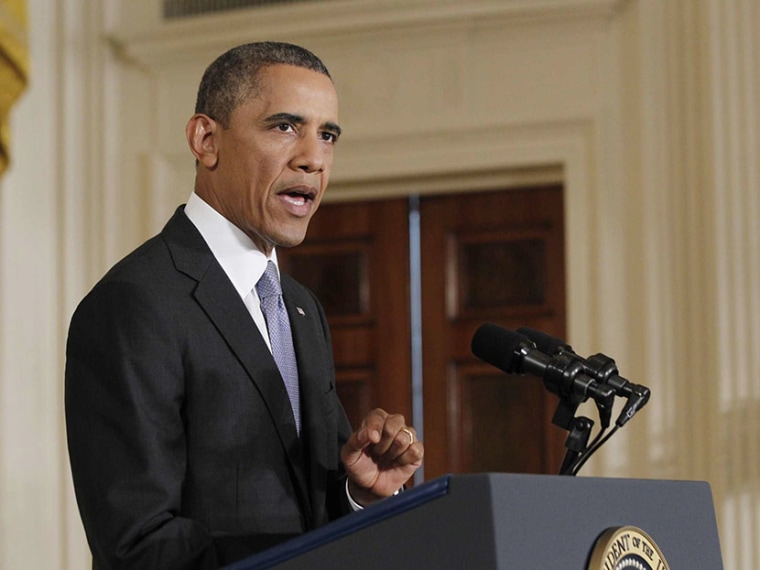In response to mounting pressure from a skeptical public over the breadth of the government's surveillance programs, President Obama on Friday unveiled steps toward reforming the National Security Agency's policy on spying—but did the president go far enough?
"The whole thing felt like a grudging exercise in which the president was basically telling everyone, 'you should trust me, we don't really have to do this, but if you insist on it, we will do these little things," The Huffington Post's Howard Fineman said on NOW with Alex Wagner Monday.
The president outlined four, somewhat vague proposals on Friday, the most substantive of which involved appointing a privacy advocate to monitor the secret dealings of the Foreign Intelligence (FISA) court.
The president's proposals were met with skepticism on both sides—Obama's remarks managed to simultaneously anger the editorial boards of both The Wall Street Journal and The New York Times—no small feat.
Several commentators were critical of the president's insistence that he had already taken steps to address privacy concerns raised by the programs, long before NSA contractor Edward Snowden's leaks to The Guardian and Washington Post.
"I'm all for a 'mend it, don't 't end it' approach to NSA surveillance," The Washington Post's Matt Miller told NOW. "But the idea that the president is doing this as anything other than a response to the debate that Snowden created puts the president in a very weak position."
Fineman agreed.
"President Obama's not the kind of guy who likes to admit that he overlooked something or was hiding something, or that he made a mistake, or is kowtowing to public pressure or that he's acknowledging the power of Edward Snowden, all of which he did," he said.
Wagner said there were two issues at play. "One is: executive power is rarely reined in, and almost never by the executive branch and so the president should get some kudos for initiating this process," she said. "But the other thing is that national security and counter-terrorism is the new rail of American politics."
